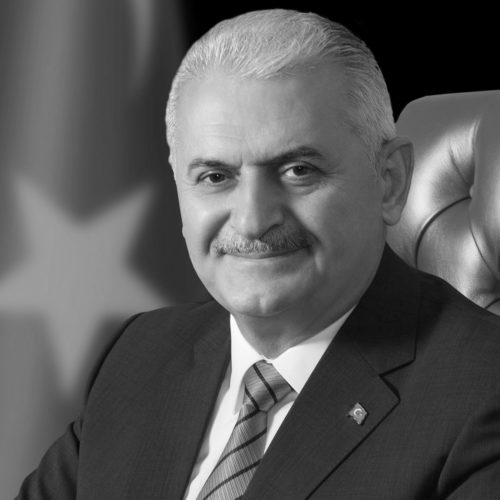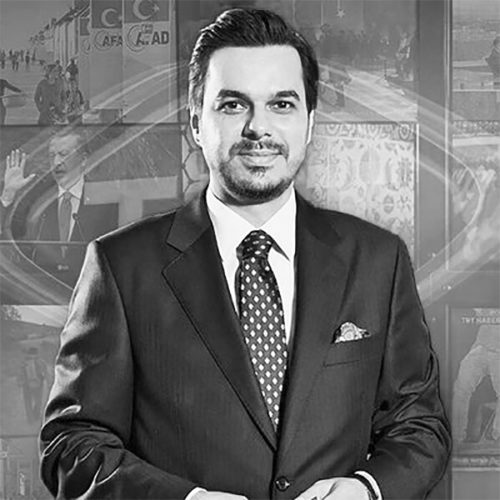TRT World Forum 2018 opened with a welcoming speech delivered by Ibrahim Eren, Director General of TRT. He began by explaining that we are living in an era where we are witnessing a collapse in safety and security at a global level – where wars, rising tensions, fragmented identities and humanitarian calamities are increasingly experienced in many different regions of the world. He mentioned the plight of the people of Rohingya, the humanitarian crisis of Yemen and the war fatigue of Syria. He said that the greatest obstruction to a solution for all of these problems is caused by the fragmentation we see in the world today. Thus, Mr. Eren stressed the importance of coming together to debate global issues and propose suggestions to solutions. TRT World Forum’s main objective, therefore, is to present a platform for academics, activists, politicians and journalists – with diverse experiences, knowledge and accretions – to analyse and discuss the issues that continue to characterise the world’s current socio-political situation.
Former Prime Minister of Turkey and current speaker of Parliament, Binali Yıldırım, began by explaining how our world is currently faced by issues that go beyond borders, where we can no longer look at them as local or regional. He quoted the renowned historian Ibn Khaldun who said “geography is destiny” and emphasised that in order to live with its destiny, it is the duty of those who govern states – who take responsibility – to ensure that the people live in peace. Deliberating on the crises in the Middle East, Mr. Yıldırım stressed that Turkey, like any other country, is affected by the crises of its neighbours, namely Syria. He mentioned that Turkey has spent over 30 billion dollars on the refugee crisis. However, in the Turkish mindset, what mattered most was not the money spent but the saving of lives. There is a strong held belief that whoever saves a life, it will be as though he has saved the whole of humanity. He further stated how the earth’s resources are not shared in a fair and equitable way. This has led not only to war and conflict but also poverty, deprivation, drought, unemployment and hopelessness. According to research, the wealth of the world’s eight richest people is equal to the wealth of the poorest half of the world’s population. This figure is a striking example of global inequality. Mr. Yıldırım went on to state that in order to reach the aim of living in a world of peace, tranquility and security for everyone, ‘powerful states’ should act in a just manner and hold good intentions whilst cooperating with others. He noted that the fight against terrorism is the primary area in which cooperation is needed, emphasising that terror and terrorism should be indifferently and unconditionally rejected – regardless of the country it affects or the ethnic identity or religion it is affiliated to. Although Turkey has been battling the separatist, ethnic terrorist organisation, the PKK, for a period of over 30 years, Mr. Yıldırım explained that Turkey has not received much support from the states it deemed as allies. He went on to criticise states that prioritised certain terrorist groups over others, namely ISIS, while allowing the PKK and YPG to continue their terrorist activities in Syria. Mr. Yıldırım affirmed that there is no aspect of cooperating with a terrorist organisation that can be excused. It is not possible to eradicate regional and global terrorism by using one terrorist organisation to destroy another terrorist organisation.
Mr. Yıldırım recalled the night of the 15th of July coup attempt and hailed the Turkish people for their bravery, in which the world witnessed the power of the people triumphing the power of the tanks. He criticised the US for its failure to allow the extradition of the head of the FETO organisation, Fethullah Gülen, who was the principal mastermind behind the failed coup. This is because it is not possible to get rid of terrorism with weapons alone, without cutting on logistics and funding. Moreover, Mr. Yıldırım stressed that one of the key reasons for the various tensions in the world is the continuation of the current status quo which was created in the post-WWII era in order to prevent war, stating that this order no longer meets the needs of states. He reiterated President Erdoğan’s saying that the “World is bigger than five” and asked: “Who gives these five-permanent member states the right to resistance against events single-handedly?” This was obvious when UN institutions were incapable of sanctioning the Syrian regime and applying resolutions in order to establish a climate of peace and security. The same applied to Palestine where a lot of UN resolutions were not implemented by Israel. Thus, he highlighted the ineffectiveness of this global system and how it merely reflects the interests of the powerful.
More importantly, Mr. Yıldırım noted that the power to veto in the United Nations Security Council was initially developed in order to prevent global instability and the outbreak of future wars. Today, the veto serves not as a preventer of war, but rather an instigator. Since there is an estimated 1.8 billion Muslims around the world, and all of today’s chaos, civil wars, and terrorism are in Muslim countries, then at least one of the permanent members of the UN Security Council should be a Muslim majority country. Adding that not one state should have the right to veto, Mr. Yıldırım emphasised that diversity must be included in affairs in order to find solutions to global issues. Criticising the EU’s global role, he stated that the EU is not active enough in working to tackle international problems and that its current approach to global issues is far from producing solutions. For the EU to be more affective in addressing the global challenges we face, it needs to place sustainable development at the heart of its core agenda.

